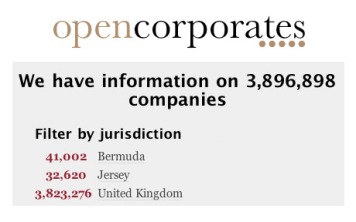See the Italian Draft Freedom of Information law here
Here is my analysis:
Overview
The legislation is clear, succinct and well-constructed. Particularly noteworthy are:
- A strong and clear purpose clause at the outset, emphasising the importance of transparency to the workings of Italian democracy and access to information as a right. This is important in sending a signal to those working with the legislation of its importance and can also play a part in determining later legal rulings
- The law is wide in applicability including a variety of public bodies and entities providing a public service.
- There are clearly expressed exemptions and a public interest test mechanism.
- There is a good oversight regime located in an already established body.
- Importantly there is a clear sensitivity to data protection and privacy.
Thoughts on the Proposed Legislation
The Request
- The request can normally be made by anyone with a valid email address.
- The draft law states a ‘name and address’ but that could be clarified to explain it does not mean a residential place (i.e. home) but simply an email.
- Some thought could be given to the form of requests, as the UK also now allows requests via social media-see page 22 of this guidance from the UK Information Commissioner.
The Appeal System
- The appeal timelines may prove difficult to work in practice. The draft law gives a rather short time limit of 30 days. All FOI regimes are affected by delay and appeal systems particularly so. The danger with such a timeframe is that delay will build up and slow down the system with a detrimental effect on confidence.
- Across different FOI regimes there is discussion as to whether any appeal body dealing with FOI should either (i) work closely with (ii) be the same body as that which oversees Data Protection appeals. Many appeals and complex requests concern the interaction/tension between the two principles.
- There is also an issue of who the appeal system reports to e.g. is it government or the legislature. This may lend a body independence politically and help in terms of resources.
Duty to help and assist see UK
- One very basic but helpful feature of an FOI law can be a statutory duty on authorities to assist requesters with their questions i.e. to help. See below for an example from the UK law where a body must ‘advise and assist’ e.g. in how to refine a request:
‘16 Duty to provide advice and assistance.
(1)It shall be the duty of a public authority to provide advice and assistance, so far as it would be reasonable to expect the authority to do so, to persons who propose to make, or have made, requests for information to it.
(2)Any public authority which, in relation to the provision of advice or assistance in any case, conforms with the code of practice under section 45 is to be taken to comply with the duty imposed by subsection (1) in relation to that case.
http://www.legislation.gov.uk/ukpga/2000/36/section/16
Pro-Active Publication
- The draft law contains some interesting ideas on pro-active publication and how it can be promoted. The republication idea here is a good one.
- Evidence from different systems points to ‘Publication Schemes’ (i.e. mandated searchable lists of available documents displayed by each public body) as being rather outdated and rarely used by the public.
- One more promising feature are ‘disclosure logs’ whereby all previous requests and answers are listed and can be searched publically (also useful for the public body to be able to search for answers to repeat requests). Here is an example from the UK Ministry of Justice and this one from local government body Coventry City council which has a breakdown of topics and a search engine.
- Many countries are also adopting central online portals for FOI-see the US central FOI computer system e.g. US FOIA portal https://open.foia.gov/ or Mexican Federal tracking system.
Coverage of the Act: Covering new bodies
- Many laws contain a power for Ministers to add new bodies to the legislation as they are created-see here for the section of the UK law
- One body frequently discussed is Parliament. Many legislatures are partially covered for ‘administrative’ aspects of their work while the more party political aspects of their work and other confidential areas (e.g. correspondence between constituents and Members, the private work of committees) are restricted. In the UK the Speakers of both Chambers are given an exemption power to cover Parliamentary privilege (that is actually rarely used).
- The President /Quirinale should also be covered. There may be a similar need to cover some potentially sensitive correspondence as happens elsewhere.
- Other bodies of note include the police and health authorities.
Coverage of the Act: Private Bodies
- This a key area as privatisation and public-private partnerships mean private companies carry out more and more public work.
- Some FOI regimes actually cover of private bodies-both the Nigerian and South African laws cover private entities in certain situations. It is not clear how effective these parts of the legislation are or if they have significantly opened up private bodies.
- India has a different approach where you can use the Act to find out if the government is investigating a particular body, and access the information that way- see this blog for a discussion.
- The Irish FOI Act can potentially cover any body in receipt of ‘substantial’ funding from government.
- UK has currently opted for the insertion of standard transparency clauses in contracts with providers. There are numerous other options-see this discussion document from the Information Commissioner’s Office.
Oversight/Implementation [including thoughts on once the law is passed]
- Separate from the appeal system, there is a need for a body to oversee implementation, particularly in the early years to promote the Act and ensure standards.
- In New Zealand there was a specific body, the ‘Information Authority’, external to government that promoted the Act and provided guidance and information that was then disbanded after 5 years.
- The UK had a body within the Ministry of Constitutional Affairs called the Information Clearing House that was more practical and dealt with compliance, requests across government and maintaining standards. Again, this was disbanded after a number of years.
- It is important that public bodies maintain and publish statistics on use of the Act and requests made to them for monitoring purposes and to get a sense of how the Act is working.
- A further important factor is to ensure political support, to persuade and create compliance, and gathering of evidence to offset concerns/anxiety among government. Frequently there are
- Concerns over resource costs (often a camouflage for a political discussion-see this paper from Ireland and this from the UK Constitution Unit)
- Concerns over decision-making and procedures (well protected decision-making exemptions/exclusions are the answer)
- Concerns over ‘abuse’ (this is often centred on ‘vexatious’ requesters and journalists but here statistics and positive examples can help)
- Publicity is important in raising awareness among the public and encouraging use-the Scottish Information Commissioner ran a series of TV advertisements to encourage use and India has a state run TV show on its Right to Information Act.
- Legislation can also usefully be reviewed by Parliamentary Committees at certain intervals once the law is in place. In the UK, for example, a Parliamentary Select Committee reviewed the Act one year on and there was further detailed post-legislative scrutiny in 2012.
Further Links




